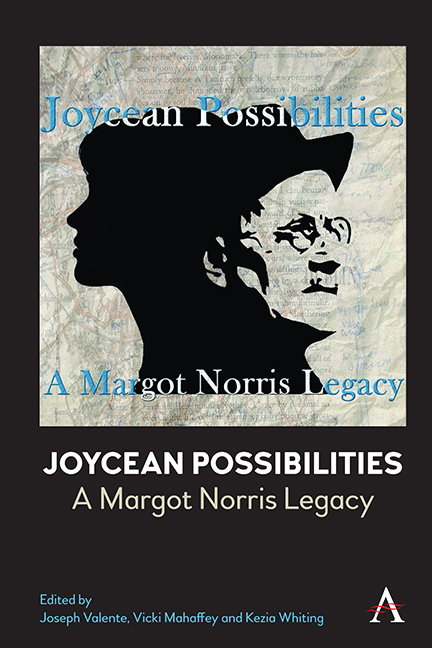12 - James Joyce’s Humane Comedy
Published online by Cambridge University Press: 20 April 2024
Summary
While living in Trieste, during his first ten years of self-imposed exile from Ireland, James Joyce not only threw himself into his career as an author— publishing Chamber Music, completing Dubliners, and transforming Stephen Hero into A Portrait of the Artist as a Young Man—but, when he was not giving language lessons, he also reaffirmed his ongoing commitment to understanding the process of creativity through an intense study of the works of other authors. His reconstituted library from that period indicates, unsurprisingly, that he was drawn predominantly to fiction. In terms of quantity, nineteenth century French and Russian authors attracted more of Joyce's attention than did any others, and of those writers he showed a particularly strong interest in the gritty, realistic approach of Honoré de Balzac. During this time in Trieste, Joyce acquired a dozen and half works by that author, including fifteen books from Balzac's La Comédie humaine series.
While one might ascribe any number of reasons for this predilection, an obvious explanation is that their shared interest in the mores of the bourgeoisie led Joyce to give Balzac's work pride of place in his library as. However, a striking distinction obtains between the attitudes that shaped the two author's observations. Balzac's narratives stand aloof from the characters that he created, sustaining a dispassionate, analytic view of them throughout his works. Joyce's discourses, on the other hand, show an interest in doing more than pillorying the Irish through acerbic accounts that simply highlight critiques of their actions and attitudes.
Certainly, Joyce was fascinated by the mundane details of ordinary existence, and he never hesitated to draw attention to the peculiarities and weaknesses of any of his characters. At the same time, he was never aloof, punitive, or contemptuous in his representations of human failings. Indeed, he understood and sympathized with the imperfections of his characters, and he would not suppress acknowledgments of their humanity in order to turn them into vehicles for excoriating the culture that shaped them. Instead, in an understated but insistent way, Joyce's prose reminded readers that a range of feelings and attitudes shape any nature. Even in individuals with outsized traits that seem to dominate their beings, Joyce was careful to introduce other impulses that enabled readers to expand their understanding of the characters’ motivations and actions.
- Type
- Chapter
- Information
- Joycean PossibilitiesA Margot Norris Legacy, pp. 175 - 188Publisher: Anthem PressPrint publication year: 2022

